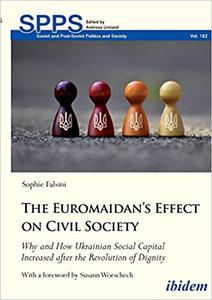
Sophie Falsini, "The Euromaidan's Effect on Civil Society: Why and How Ukrainian Social Capital Increased after the Revolution of Dignity"
English | ISBN: 3838211316 | 2018 | 160 pages | EPUB | 474 KB
Sophie Falsini presents a fascinating analysis of the current state and future prospects of Ukrainian civil society in light of the 2013-2014 events. Since then, the country has been shaken by both sociopolitical disorders and a deep humanitarian emergency, also exacerbated by the crisis of internally displaced people. Yet it is under these same premises that civil society emerged as a main actor in post-Euromaidan politics, development, and reform. Through its war relief work and the endeavors to lead Ukraine towards democratization, civil society has, to a considerable degree, offset the lack of an efficient state administration and activated vital components of Ukrainian social capital.
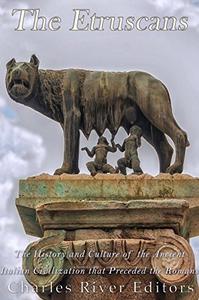
The Etruscans: The History and Culture of the Ancient Italian Civilization that Preceded the Romans by Charles River Editors
English | August 12, 2015 | ISBN: 1516856570 | 66 pages | EPUB | 2.02 Mb
*Includes pictures *Includes ancient accounts describing the Etruscans and their wars with Rome *Includes online resources and a bibliography for further reading *Includes a table of contents "These people of Greek descent were called Etruscans, and it has been discovered that they had advanced so far in civilization, that they afterwards gave many of their customs to the city of Rome when it came to power. A confederacy known as the 'Twelve Cities of Etruria' became famous afterwards, though no one knows exactly which the twelve were." - Arthur Gilman, The Story of Rome from the Earliest Times to the End of the Republic When people think of ancient Italy, the Romans are usually the first and last people that come to mind, but long before Rome was built by Latin speaking people, the culture of Italy was dominated by the Etruscans. Although the Etruscans may not comprise the core of most histories of the ancient Mediterranean, they exerted a profound influence on the region from the 8th-5th centuries BCE that continued to resonate for centuries after as the Romans carried on many of their traditions. Today, much of what is known about the Etruscans comes from the ancient Roman and Greek writers who had a deep respect for them but saw them as exotic and foreign. As the famous Roman philosopher Seneca wrote about the Etruscans, "Whereas we believe lightning to be released as a result of the collision of clouds, they believe that the clouds collide so as to release lightning: for as they attribute all to deity, they are led to believe not that things have a meaning insofar as they occur, but rather that they occur because they must have a meaning." The Etruscans referred to themselves as "Rasenna" in their own language, but the Greeks called them "Tyrrhenians" and the Romans referred to them as "Etrusci", which is where the modern term "Etruscan" is derived (Cornell 1995, 45). As this suggests, reconstructing Etruscan history is based primarily on the Greco-Roman accounts, but other sources are utilized by modern scholars to create a more accurate picture. Unfortunately, despite the fact the Etruscans were a literate people, their own histories have disappeared without a trace. Nevertheless, even with this lack of primary sources, the abundance of classical writings about the Etruscans and modern historical, archaeological, and art historical studies can establish an image of Etruscan history and culture that, although not complete, is enough for scholars to arrive at some important conclusions. An in-depth examination of Etruscan history and culture reveals that the Etruscans developed a culture that was as advanced as that of their Greek contemporaries and was also one that the later Romans were indebted to on many levels. The Etruscans: The History and Culture of the Ancient Italian Civilization that Preceded the Romans looks at the influential civilization that helped give rise to the Roman Empire. Along with pictures of important people, places, and events, you will learn about the Etruscans like never before, in no time at all.

Daniel R. Brunstetter, "The Ethics of War and Peace Revisited: Moral Challenges in an Era of Contested and Fragmented Sovereignty"
English | ISBN: 1626165068 | 2017 | 336 pages | EPUB | 702 KB
How do we frame decisions to use or abstain from military force? Who should do the killing? Do we need new paradigms to guide the use of force? And what does "victory" mean in contemporary conflict?
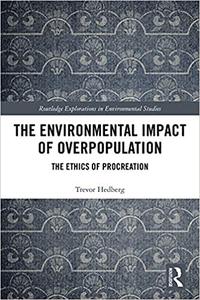
Trevor Hedberg, "The Environmental Impact of Overpopulation: The Ethics of Procreation "
English | ISBN: 1138489751 | 2020 | 180 pages | EPUB | 826 KB
This book examines the link between population growth and environmental impact and explores the implications of this connection for the ethics of procreation.

Diane Heith, "The End of the Rhetorical Presidency?"
English | ISBN: 0367522500 | 2020 | 154 pages | EPUB | 938 KB
The End of the Rhetorical Presidency? Public Leadership in the Trump Era explores one of the most disruptive aspects of the Trump presidency.

Pragati Rawat, "The Effects of Technology and Institutions on E-Participation: A Cross-National Analysis "
English | ISBN: 0367755491 | 2021 | 118 pages | EPUB | 760 KB
In this book Pragati Rawat and John C. Morris identify and evaluate the impact of factors that can help explain the difference in e-participation, public participation using information and communication technology, in different countries.
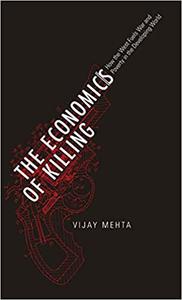
Vijay Mehta, "The Economics of Killing: How the West Fuels War and Poverty in the Developing World"
English | ISBN: 0745332250 | 2012 | 248 pages | EPUB | 878 KB
Globalisation has created an interconnected world, but has not diminished violence, militarism and inequality. The Economics of Killing describes how the power of global elites, entrenched under globalisation, has created a deadly cycle of violence.
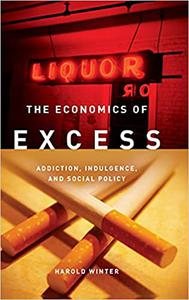
Harold Winter, "The Economics of Excess: Addiction, Indulgence, and Social Policy"
English | ISBN: 0804761477 | 2011 | 208 pages | EPUB | 545 KB
The Economics of Excess discusses both standard and behavioral economics as they apply to addiction, indulgence, and social policy. Chapter One provides a thorough discussion of economic models of addiction. The model developed in most detail takes into account both standard and behavioral approaches. The next three chapters examine specific indulgences: smoking, drinking, and overeating. The heart of this book is its comprehensive discussion of what is often referred to as the "new paternalism." Many economists are now challenging the more traditional belief that, unless they are harming others, people should be left to their own indulgences. As more and more economists are arguing for policies that are designed to protect people from themselves, this book offers a serious, yet accessible, discussion of the pros and cons of such interventions. Written in an approachable style, this book will serve researchers who are new to the economics of addiction and students in a variety of economics and policy courses alike.
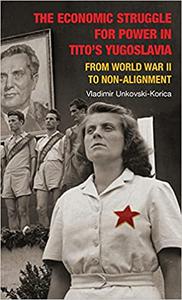
Vladimir Unkovski-Korica, "The Economic Struggle for Power in Tito's Yugoslavia: From World War II to Non-Alignment "
English | ISBN: 178076328X | 2016 | 304 pages | EPUB | 432 KB
Here, Vladimir Unkovski-Korica re-assesses the key episodes of Tito's rule - from the joint Stalin-Tito offensive of 1944, through to the Tito-Stalin split of 1948, the market reforms of the 1950s and the 'turn to the West' which led to Yugoslavia's non-alignment policy. For the first time, Unkovski-Korica also outlines Tito's internal battle with the Workers' Councils - empowered union bodies which emerged with the 'withering away of the party' in the early 1950s.The Economic Struggle for Power in Tito's Yugoslavia draws out the impact of the period economically and politically, and its long-term effects. A comprehensive history based on new archival research, this book will appeal to scholars and students of European Studies, International Relations and Politics, as well as to historians of the Balkans.
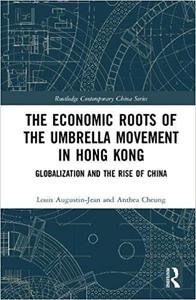
Louis Augustin-Jean, "The Economic Roots of the Umbrella Movement in Hong Kong: Globalization and the Rise of China "
English | ISBN: 0815368232 | 2018 | 160 pages | EPUB | 731 KB
In the autumn of 2014, thousands of people, young and educated in their majority, occupied the chief business district and seat of the government in Hong Kong. The protest, known as the Umbrella Movement, called for 'genuine democracy', as well as a fairer social and economic system.


